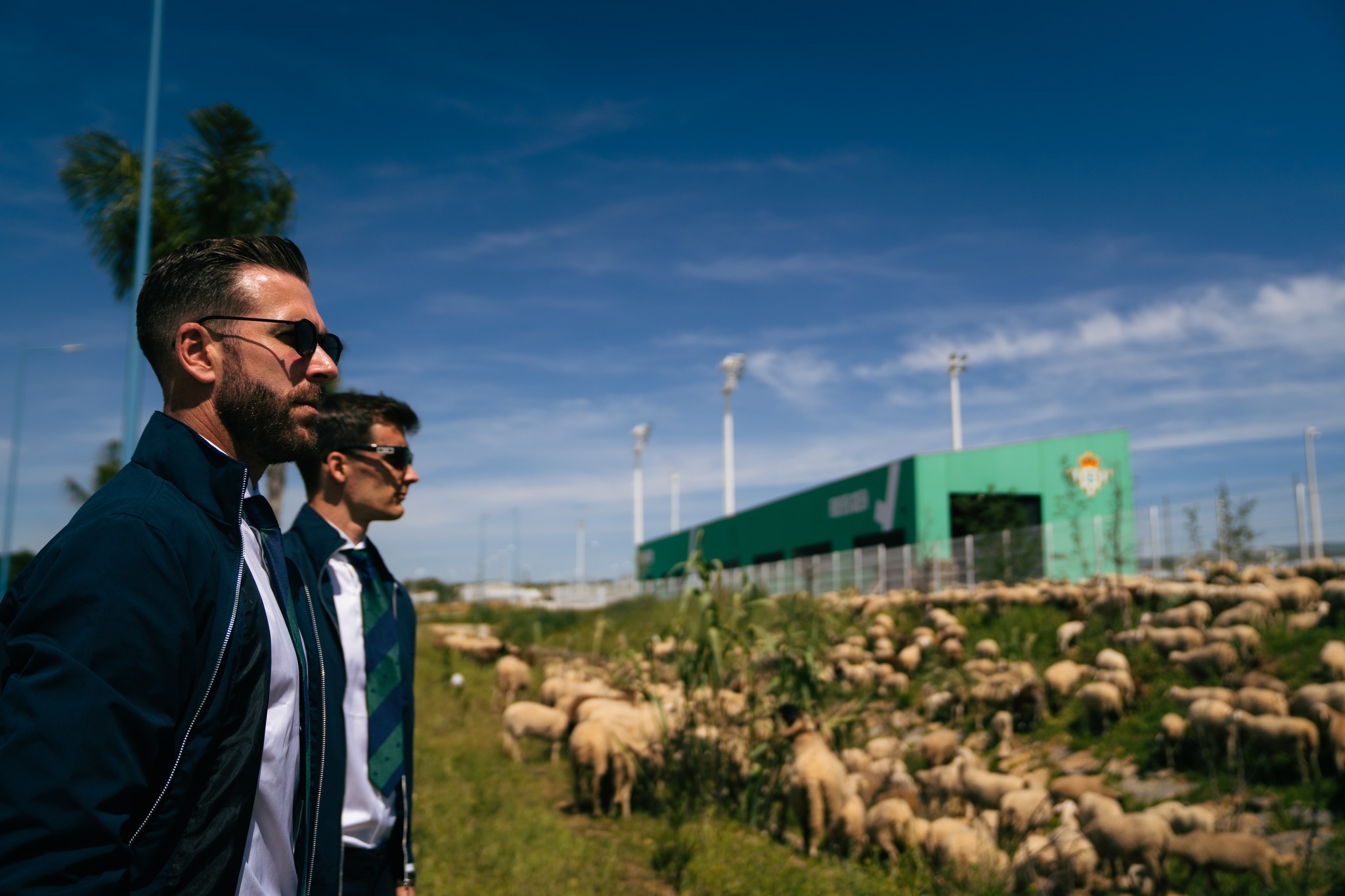Background
Through its Forever Green programme, Spanish La Liga club Real Betis Balompié has made environmental sustainability a core part of its identity. Launched to harness the global influence of football, Forever Green aims to inspire fans, partners and the broader football community to take meaningful action on climate change and environmental degradation.
Since its inception, the initiative has driven 174 environmental actions across 74 countries, involving 94 organisations and contributing to a reduction of 4,560 tonnes of carbon emissions.
One of the many ways the club is embedding sustainability into its operations is through how it manages its green spaces, an often-overlooked area of environmental impact in sport. High-quality pitches and the areas around them are essential to football performance, but maintaining them using traditional methods, particularly gas-powered mowers and chemical treatments, comes at a cost to local nature.
Challenge
Conventional groundskeeping practices rely heavily on fossil fuel-powered equipment and herbicides, producing emissions and chemical runoff that harm both the climate and local ecosystems. Regular, intensive mowing also disrupts biodiversity, destroying habitats and food sources for insects, birds and small animals.
At the club’s new 50 hectare Rafael Gordillo Ciudad Deportiva training centre in Dos Hermanas, only 20 hectares are currently developed. The remaining 30 hectares consist of largely unmanaged natural land, creating a challenge: how to care for this landscape in an environmentally responsible, low-cost way.
Approach
The solution came through a simple conversation. A local shepherd approached the club requesting access to graze his flock – around 50 sheep and goats – on the facility’s unused grassy areas. The club agreed, and since April 2025, the animals have been visiting to graze, naturally maintaining the grounds without machinery or chemicals.
No money changes hands; the shepherd benefits from new grazing land, while the club avoids the cost and environmental impact of traditional upkeep.
Nicknamed ‘biomowers’, the sheep and goats offer a low-impact, low-noise alternative to gas mowers. As they graze, they trim vegetation, fertilise the soil with manure and avoid the need for synthetic fertilisers or herbicides. Their presence supports soil regeneration and helps prevent wildfires by reducing the build-up of dry plant matter.
“50 sheep and goats are helping to maintain 30 hectares of wild land.”
Results and impact
Though still in its early stages, the initiative is already delivering environmental benefits. By eliminating the use of fossil-fuelled mowers and chemicals across a large area of the site, the club has reduced emissions, noise pollution and toxic waste. The animals’ grazing also supports more natural patterns of plant growth,
creating microhabitats that encourage biodiversity.
Soil health is improving thanks to the natural fertilisation process, and the risk of fire, an increasing concern in southern Spain, is reduced. The club sees potential to
formally measure these benefits over time but recognises that even without data, the ecological gains are evident in the land’s resilience and the return of insect and birdlife.
Social and commercial ripple effects have also emerged. The club’s marketing team used the goats in a playful collaboration with sustainable transport sponsor Trainline, referencing player Anthony’s nickname ‘The GOAT’. This spontaneous content generated positive engagement on social media and positioned the club’s environmental commitment as both serious and accessible.
Lessons learned
The biomowing initiative shows that not all sustainability projects require heavy investment, long planning cycles or complex reporting. Sometimes, progress begins with a simple, mutually beneficial conversation.
In this case, a local partnership turned unused land into a model for low-carbon, nature-positive maintenance.
For Real Betis, the key lesson is that quick wins and low-barrier actions can be powerful, especially when backed by a culture that embraces experimentation and responds to opportunities as they arise.
“Too often, people start with a strategy, then an action plan and lose momentum along the way. We believe in just starting. A simple initiative can be meaningful and effective, even while the bigger plan is still taking shape.” – Fausto Scaldaferri, Social and Environmental Sustainability Specialist at Real Betis.
Topics
Nature protection
Nature restoration
General daily operations
Land
Pitch, course and outdoor court sports
Club/team


